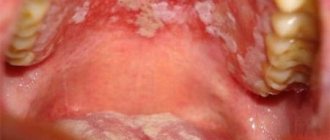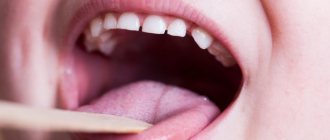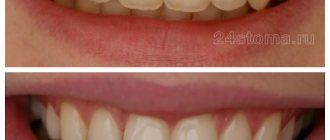Recent studies prove that the nature of many diseases lies not only in physical factors, but also depends on the emotional state of a person. Stress and disorders can become a stimulant for the development of pathological processes in various organs and areas of the body, including the oral cavity. The psychosomatics of stomatitis is explained, first of all, by the inability to control one’s emotions and adequately respond to stressors. Therefore, this disease is most often observed in children.
What is stomatitis
Stomatitis (oral mucositis) is an inflammatory disease that affects the oral mucosa. The disease can have different origins and vary in clinical manifestations. Damage to the mucous membranes can be either an independent pathology or a consequence of other diseases. For example, flu, measles, and emotional distress.
Free webinar
Psychomatics: how emotions trigger diseases
Teacher: Olga Butakova
More details
There are several classifications of oral diseases:
- depending on the root cause: bacterial, fungal, viral, erosive, radiation origin;
- depending on concomitant pathologies: streptococcal, syphilitic infection.
The following types of stomatitis are distinguished:
- ulcerative;
- candida;
- aphthous;
- herpetic;
- allergic;
- toxic, etc.
Damage to the mucous membranes of the oral cavity occurs as a result of exposure to pathogenic factors. However, to increase the intensity of their influence, predisposing factors are necessary that can initiate the onset of the disease. Infectious agents that can cause stomatitis include:
- streptococci;
- gonorrhea;
- tuberculosis;
- herpetic virus;
- cytomegalovirus;
- smallpox;
- measles;
- flu;
- parainfluenza;
- candidiasis, etc.
If we consider the traditional physiological factors that contribute to the development of stomatitis, then among them are:
- gastrointestinal diseases;
- disorders of the cardiovascular system;
- general decrease in immunity;
- helminthic infestation;
- alcohol abuse;
- smoking;
- allergen influence;
- taking medications;
- chemotherapy and radiation.
The psychosomatics of stomatitis is explained by a disturbance in the emotional background, which is reflected in physiological manifestations. Pathogenic organisms that can provoke inflammatory diseases of the oral cavity are activated when a person experiences a strong psychological shock, or if he is under stress for a long period of time. Among the most common psychosomatic causes are:
- anger;
- resentment (including long-standing);
- guilt;
- inability to forgive;
- excessive perfectionism.
When a person’s psycho-emotional system poorly perceives new information, negative events, and inadequately assesses the situation (for example, exaggerates its importance), oral diseases can occur - stomatitis, periodontal disease, gingivitis and even ulcers on the tongue.
Stomatitis and stress
Stress is an integral part of human life. From the point of view of achieving goals and building character, it can be useful. On the other hand, constant stress can negatively affect health and productivity. According to the World Health Organization (WHO), stress-related problems will become one of the leading causes of disability in the next decade. Stress can also lead to a number of systemic diseases, such as diabetes, hypertension, autoimmune diseases and oral pathologies.
Psychological stress may play an important role in the occurrence of recurrent stomatitis. Emotional stress becomes a trigger rather than the main physical cause of the disease. Under the influence of stress, the immune system is weakened, and as a result, the body cannot resist even minor infections.
Psychosomatics of stomatitis is quite often observed in the category of people who are regularly exposed to stressors or, for one reason or another, have a low stress threshold. For example, students at medical universities systematically experience stress both during their studies and during work. An extremely tense educational atmosphere, the complexity of the curriculum, the high responsibility of the profession, and the uncertainty of the future negatively affect the psychological state of the student every day.
Proof of this is a study conducted among students of the Government Dental College in Jammu, India. The study involved 160 people who underwent a special survey. Among the participants, 55% confirmed that they are bothered by inflammation in the oral cavity at least once a year. However, for most, the symptoms disappeared completely or decreased significantly in about a week.
The study took into account the frequency and intensity of stress experienced by participants. Junior students reported increased levels of anxiety, while senior students experienced less psycho-emotional stress. They also noted a low frequency of relapses of inflammatory diseases of the oral cavity. When the incidence of stomatitis was compared according to different levels of stress measured on a special scale. The maximum number of incidents was observed among students who experienced stress constantly or quite often. And only a few participants who never experienced stress reported rare episodes of illness.
According to the data obtained, psychosomatic stomatitis among dental graduates was observed in more than half of the subjects. There was a consistent dependence on the level of stress among fixed episodes. Current evidence suggests the need for strategies to reduce stress levels in the population and improve physical and psychological well-being.
Prevention of dental problems due to nerves
For prevention purposes, you need to take care of your physical and mental health:
- harden and strengthen the immune system;
- normalize work and rest schedules;
- adjust eating habits;
- quit smoking and alcohol;
- restore normal sleep patterns (at least 8 hours);
- eliminate stress factors (stop painful relationships, leave a job you don’t like, change your social circle);
- monitor oral hygiene (brush your teeth and tongue twice a day, use floss and mouthwash every time after eating);
- undergo an annual preventive examination with a dentist;
- promptly seek treatment of teeth, gums, and oral cavity.
It is necessary to learn to resist stress, overcome it and minimize harmful factors in life. In difficult situations, it is permissible to take herbal sedatives. But even in this case, it is better to consult a doctor.
It is important! Never tolerate anything. Immediately say what you don’t like and/or leave. Understand that your well-being and self-love are more important than any relationship, work achievements, or anything else. You are the only person who will be next to you all your life and every second.
Quarrel as a factor of stomatitis
In adults, psychosomatic causes of stomatitis may be associated with constant disputes or verbal conflicts. If a person often enough tries to prove to someone his vision of an issue and comes across a “wall” of misunderstanding and ignorance, at a certain point his body weakens and can no longer resist the influence of external negative factors. The result of such overexertion is inflammatory diseases of the oral cavity, which can recur over time (depending on the duration of the conflict and its outcome).
Even memories of an unresolved dispute that a person experiences day after day can negatively affect the state of the psycho-emotional background. Also, an unvoiced point of view can have negative consequences if it is fundamental to a person. Therefore, psychologists emphasize the importance of an adequate assessment of the situation and a timely response to it, so that in the future compensation for unresolved conflicts does not affect the person’s physical condition.
A prominent representative who has experienced the negative impact of constant controversy is the great psychoanalyst Sigmund Freud, whose ideas were previously often not recognized and were subject to harsh criticism. He suffered from cancer of the palate. The famous surgeon N.I. died of oral cancer. Pirogov, who became famous not only for his medical talent, but also for the introduction of educational reforms. Non-standard solutions in the education system were often rejected by narrow-minded authorities who did not understand the prospects for their application.
How stress affects oral diseases
Psychosomatics studies the peculiarities of the transition of emotional stress into physical illness. Instead of obvious stress, the cause may be depressive states, hidden anxiety, or any suppression of emotions. Common urticaria, which occurs as an allergic reaction to food, clothing, and household chemicals, may well manifest itself against an emotional background. Similarly, psychosomatics provokes stomatitis of the allergic type. And in what form it will manifest itself - catarrhal or vesicular, will depend on the characteristics of the immune system.
Photos of different types of stomatitis
At the end of the last millennium, a new science was born in the USA - psychoneuroimmunology. Its main thesis: “The state of a person’s soul—cheerful or sad, feeling guilty or offended—affects his immunity!”
Psychoneuroimmunology
How to get rid of stomatitis with psychosomatic roots? First, you need to completely eliminate stressful situations from your life. If this is not possible, you need to use the help of a psychologist who will teach you how to get out of stress correctly with minimal losses. Only after restoration of mental health can you move on to physical health, using ointments, gels and other medications recommended by your doctor.
To completely cure stomatitis, you need to overcome stress
What types of blockages are there for stomatitis, and how to restore harmony in the body and soul, can be found in the table.
| Types of blocking | Prerequisites | Recommendations |
| Emotional | The mouth is the entrance gate of the digestive system; all problems of the oral cavity indicate the inability to “swallow and digest” an idea. The source of information can be either a foreign object or the patient himself. | Stomatitis in this case says that the decision was made rashly. You need to be more open: perhaps the information will be useful. Biting your lips indicates a desire to hide some information from someone if this has caused concern. |
| Mental | Ulcers appear from bad thoughts if you keep them inside for a long time. Stomatitis is a reaction to fear, a spontaneous, thoughtless reaction. | Track your thoughts and don’t hold them in, express them without thinking about the reaction of your interlocutor. Reconsider a hasty decision, perceive all ideas as useful, unless you are convinced otherwise. |
Stomatitis in children
Stomatitis is a common occurrence in childhood. It is usually associated with poor hygiene in children, which is normal for this age. Children often lick dirty hands, objects on the street, they can eat food that has fallen on the ground, etc. This is how they learn about the world. Thus, pathogenic organisms easily enter the mouth and cause various inflammatory processes.
At the same time, children, especially younger ones, have an immature nervous system, so they do not yet know how to adequately respond to emotional shocks. As a result of constant stress, a child can develop various psychosomatic pathologies that damage the oral cavity, respiratory tract (for example, bronchial asthma) and skin (atopic dermatitis, etc.).
In children of preschool and school age, psychosomatic factors in the development of stomatitis may include problems with socialization, changes in routine (to which children are very sensitive), academic stress and other problems in school/family. To treat and exclude relapse of the disease, it is necessary to pay attention not only to the physical component of therapy, but also to the psychological state of the child. It should be remembered that he needs support and understanding. It is sometimes difficult for a child to solve his problems even due to the fact that he cannot formulate his experiences. Therefore, he needs the help of an adult.
Treatment of stomatitis
In the treatment of stomatitis, it is necessary to use an integrated approach. The patient is first prescribed medications to relieve symptoms and at the same time referred for consultation with a psychologist or psychotherapist, depending on the situation.
Methods of psychological influence may include:
- cognitive-behavioral correction;
- psychoanalysis with further counseling;
- neurolinguistic programming;
- meditation techniques;
- healing through art.
Family therapy may also be needed to address the child's problem. It will help establish harmony in the family and teach you to listen and hear your loved ones.
Another important way to treat and prevent recurrence of the disease in the future is to discuss your problems and dissatisfaction, as they say, “without delay.” Hidden resentment, unexpressed dissatisfaction, a constant lack of understanding on the part of the interlocutor will inevitably lead to a recurrence of stomatitis after a certain time. Therefore, it is better to talk and discuss your problems than to remain silent and hide them in the depths of your soul.
How are psychosomatic illnesses treated?
Psychotherapists of many directions - psychoanalysis and gestalt practice, NLP and cognitive behavioral school, family and art therapy - treat stomatitis with somatic roots.
Stomatitis represents the recovery phase after a change in relationship. In dental practice, a case with an infant was described. The parents of the one-year-old baby decided to wean him off his hands. After several days of a difficult experiment, accompanied by screaming, tears, and a nervous breakdown, the mother could not stand it and began to take the baby in her arms again. And immediately spots from candidal stomatitis formed in his mouth. Gradually, the illness passed even without medical intervention, since the conflict was settled.
- Allergic stomatitis
Stomatitis in a baby
Another typical example of sudden ulcers on the oral mucosa. On the eve of an exacerbation of such stomatitis, the patient was returning from a friend with her young daughter. The child was capricious, complained of fatigue, and wanted to sleep. Mom felt guilty and this made her even more nervous. When they returned home, the patient’s nerves were already on edge. She couldn’t stand it and spanked the baby on the butt.
As a child, she herself was repeatedly beaten by her parents. When she had her own daughter, the patient swore that she would never hit her child. After the incident, she was overwhelmed with guilt, and stomatitis immediately appeared.
Her ulcers are a reaction to insults, an experience of anger associated with maternal instincts. Feelings of guilt in front of my daughter and in front of my mother are now intertwined into one lump.
Mouth ulcers from anger and guilt
Due to her profession, the woman was fond of folklore. For the role of an image that would symbolize her anger, the woman chose a bear. The doctor used Ericksonian hypnosis, and the patient “saw” the bear and even played with it. At the next meeting, under hypnosis, she “saw” a cinema. On the movie screen there was her and her mother, and between them stood a bear, who covered her with his body and beat her mother with its paws. The patient was literally shaking from an excess of feelings - this is how all her accumulated anger towards her already old mother was transformed. After this course of treatment, the doctor observed the patient for 7 years. There were no relapses of stomatitis.
Ericksonian hypnosis








